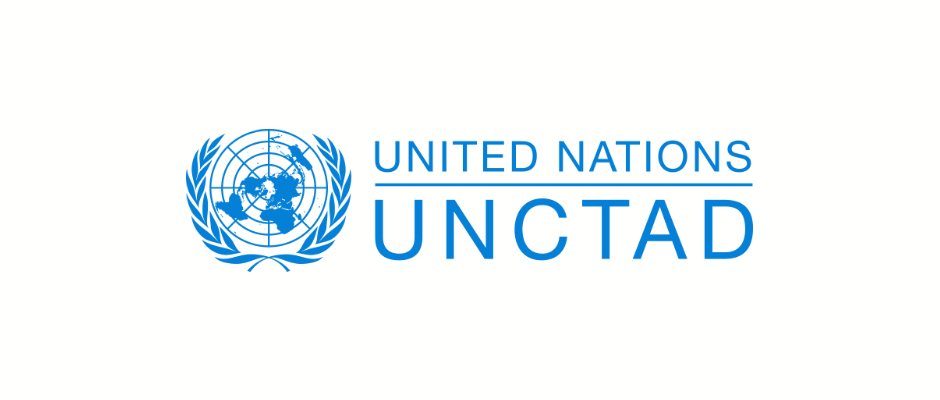
UN : Applying the law of the sea to protect International Shipping
LONDON : In recent decades, global shipping—carrier of 80 per cent of world trade—has faced numerous threats that challenge the long-established right to freedom of navigation for all merchant ships. Piracy, hijackings, armed robbery, regional conflict and the COVID-19 pandemic have put seafarers’ lives and well-being at risk—and, by extension, threatened to disrupt world trade and supply chains. More recently, a new danger to international shipping has emerged: uncrewed aerial devices aimed at ships that are simply going about their lawful business.
The world’s nearly 2 million seafarers are trained to operate ships safely, ensure protection of the marine environment and respond to emergencies on board. This is part and parcel of operating a ship in normal circumstances, responding to the perils of the sea, extreme weather and anticipated issues, such as engine breakdown. Yet the examples listed above point to wider menaces beyond routine ship operation. Seafarers become innocent victims, collateral damage in a bigger picture, in which global supply chains are imperilled and the spectre of a major casualty with loss of life and harm to the marine environment looms large.
Since November 2023, the Red Sea area—a key strategic shipping lane, gated by critical chokepoints at the Gulf of Suez and the Tiran and Bab-al-Mandab Straits—has seen numerous attempted and successful attacks by uncrewed aerial devices on international shipping.
On 26 January 2024, the maritime community and the world watched with horror as the tanker Marlin Luanda, carrying flammable naphtha in the Gulf of Aden, was struck by an uncrewed aerial device, causing an explosion and fire on board. Fortunately, the crew, supported by French and Indian naval assets in the locality, were able to extinguish the fire after several long hours, without casualties.
On 19 November 2023, the Bahamas-flagged, Japanese-chartered car carrier MV Galaxy Leader and its multinational crew were seized in the Red Sea in a horrifying helicopter raid later seen in videos that were shared on social media and news platforms. At the time of writing (February 2024), the crew members, including nationals from Bulgaria, Mexico, the Philippines, Romania and Ukraine, were still being held hostage. They must be released immediately. Seafarers are innocent victims—they are key workers, with families to support.

The International Maritime Organization (IMO) is the United Nations specialized agency tasked with ensuring safety at sea, the prevention of marine and air pollution from ships, the efficiency of shipping and maritime security. As IMO Secretary-General, I have underscored the paramount importance of protecting seafarers’ lives. I continue to call for the de-escalation of tensions and the preservation of freedom of navigation of ships in the Red Sea area.
In 2023, 15 per cent of international shipping traffic passed through the Suez Canal. The Canal and the Red Sea remain open, but trade volume going through the Canal has fallen by 42 per cent over the last two months, according to estimates by the United Nations Conference on Trade and Development (UNCTAD). Given the risk of attacks, many shipping lines have opted to take a longer route via the southern tip of South Africa. Some 540 container ships have been rerouted. Shipping is resilient and adapts, but closing an entire strategic shipping lane is not an option, since local ports and populations need shipping as well.
Legal framework
On 10 January 2024, the United Nations Security Council adopted resolution 2722 (2024) condemning attacks by the Houthis on merchant and commercial vessels; affirming the importance of the exercise of navigational rights and freedoms of merchant and commercial vessels of all States in the Red Sea; and taking note of the right of Member States, in accordance with international law, to defend their vessels from attacks, including those that undermine navigational rights and freedoms.
International law, and in particular the law of the sea and relevant international maritime conventions (i.e., those adopted under the auspices of IMO), provide the legal framework applicable to the situation in the Red Sea. The United Nations Convention on the Law of the Sea (UNCLOS) allocates the rights and obligations of States with respect to maritime zones under their jurisdiction. The Red Sea is a semi-enclosed sea within the definition of Part IX of the Convention, being surrounded by two or more States and connected to another sea by a narrow outlet, and also by virtue of consisting entirely of the territorial seas and exclusive economic zones of two or more coastal States.
Given this configuration and the presence of key outlets at its northwestern and southeastern areas, which provide access to the Mediterranean and Arabian Seas, different passage regimes apply to ships navigating the Red Sea: innocent passage in territorial sea areas, transit passage in straits used for international navigation, and freedom of navigation in exclusive economic zones (EEZ) are governed in Parts II, III and V of UNCLOS. Consistent with resolution 2722 (2024), the exercise of these rights and freedoms, especially for commercial vessels that are not used for governmental purposes and bear no warfighting functions, must be safeguarded.
While UNCLOS primarily addresses itself to States parties and not, strictly speaking, to non-State armed groups, the Convention sets out the framework for investigative and enforcement action by States with respect to acts inconsistent with the applicable regimes of passage or which relate to criminal activity. As UNCLOS is a peacetime framework convention, other legal questions, such those concerning the right of self-defence at sea, may be addressed by general international law, international humanitarian law or the law of naval warfare.
Complementary to the law of the sea and operating under its framework are several conventions that have been adopted under the auspices of IMO, such as the 1988 Convention for the Suppression of Unlawful Acts against the Safety of Maritime Navigation (the SUA Convention) and its 2005 Protocol. The SUA Convention provides a basis for States to establish jurisdiction over acts of terrorism at sea, including, among others, the seizure of a ship by force or intimidation, and damage to ships from acts of violence against persons on board that likely endanger the safe navigation of such ships. The International Convention for the Safety of Life at Sea (SOLAS) includes maritime security provisions, notably the mandatory application of the International Ship and Port Facility Security (ISPS) Code, which provides for ships and port facilities to have in place security plans approved by the flag State or national Administration and applied at varying levels of security threat risk, which is set by the national authorities for the ports and by the flag States for ships.
Practical measures that ships can apply to ward off piracy threats and armed robbers are outlined in guidance known as “Best Management Practices”, circulated by IMO. These are especially relevant in the light of recent reports on the resurgence of piracy in the Red Sea, with actors taking advantage of the current volatile security situation.
In past decades, IMO has worked successfully with Member States and the shipping industry to combat and reduce incidents of piracy and armed robbery, including through building the capacity of countries in the relevant regions to enhance their maritime domain awareness, information-sharing and collaboration. The Regional Cooperation Agreement on Combating Piracy and Armed Robbery against Ships in Asia (ReCAAP), formalized in 2004, was established in response to increased occurrences of maritime piracy incidents in the Asian region and has served as a successful model of cooperation. IMO also supports Gulf of Guinea States in west and central Africa to boost their capacities to mitigate piracy in the Gulf of Guinea, through the framework established in the Yaoundé Code of Conduct.
IMO continues to support the implementation of the Djibouti Code of Conduct (DCoC), adopted in 2009 to counter the threat of piracy and armed robbery against ships in the Western Indian Ocean and the Gulf of Aden—in particular to respond to piracy off the coast of Somalia. As incidents of piracy near Somalia fell from their peak in 2011, countries adopted the Jeddah Amendment, which expanded the Code’s remit to address broader maritime security threats and tackle root causes. The 20 regional signatory States, including countries bordering the Red Sea, share a network of Information Sharing Centres. Maritime domain awareness (MDA) has been enhanced and thousands of people in government administrations have benefited from regional maritime security training. With the ongoing conflict-related attacks on international shipping in the Red Sea area, the DCoC forum plays a critical role in bringing States together to ensure freedom of navigation and protection of seafarers, cargoes and ships, to maintain global supply chains.
Protecting lawful navigation by international shipping in strategic sea lanes requires concerted action. The deployment of missiles and drones aimed at international shipping represents a new, alarming threat that we must work together to address. Ultimately, in the Red Sea, we need a cessation of hostile activity that targets innocent seafarers. And we need regional and international efforts for peaceful resolution.
